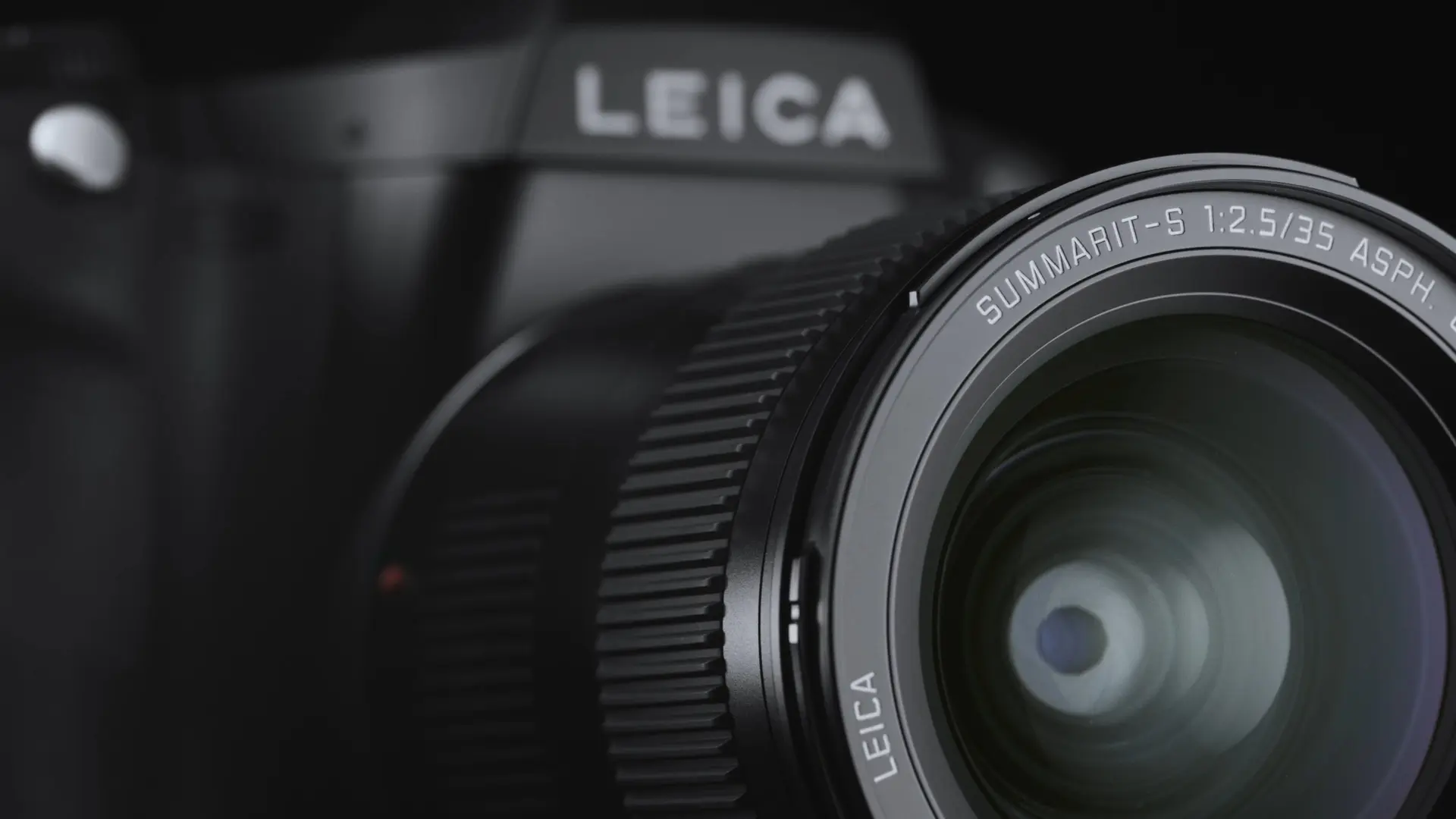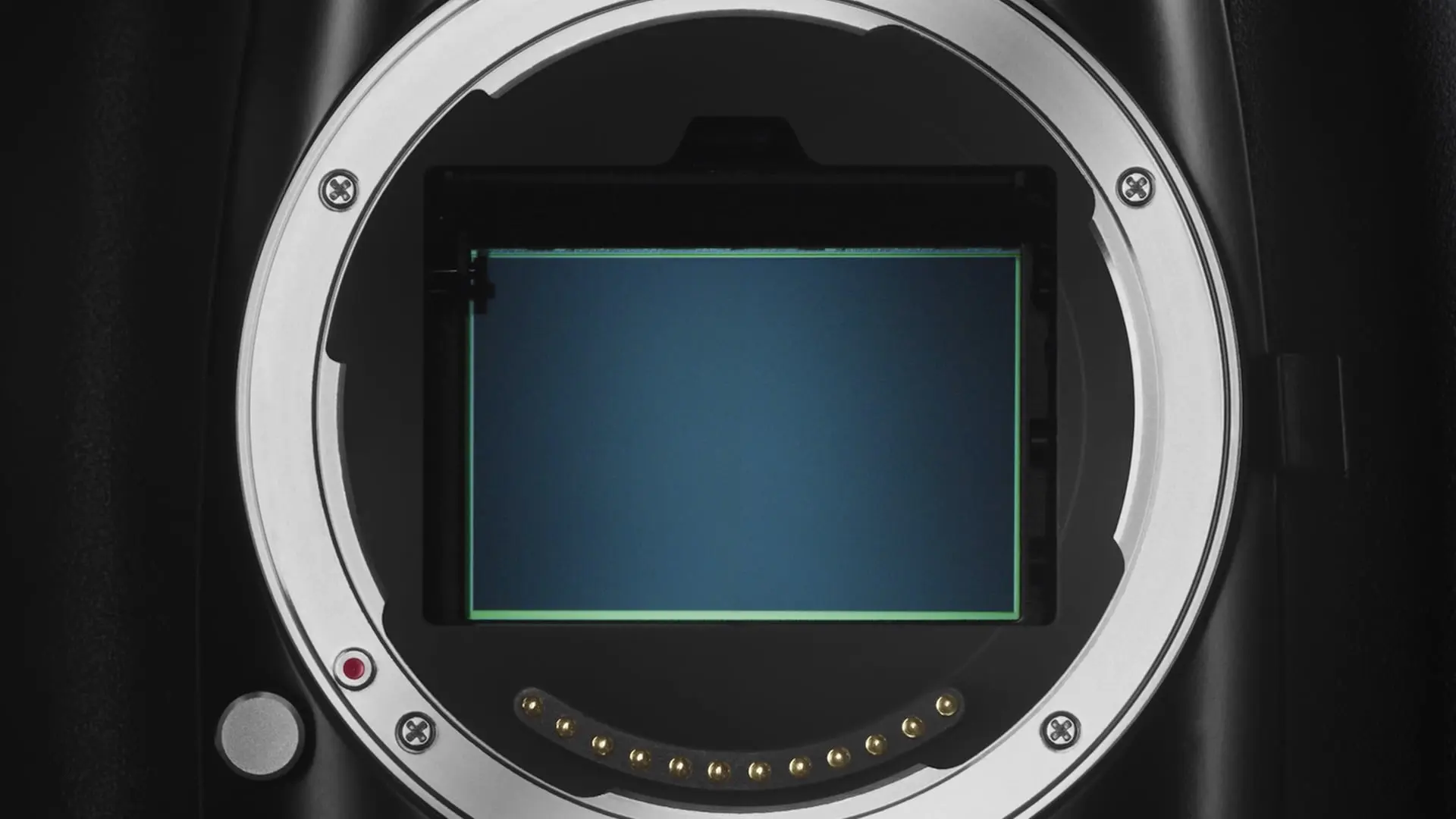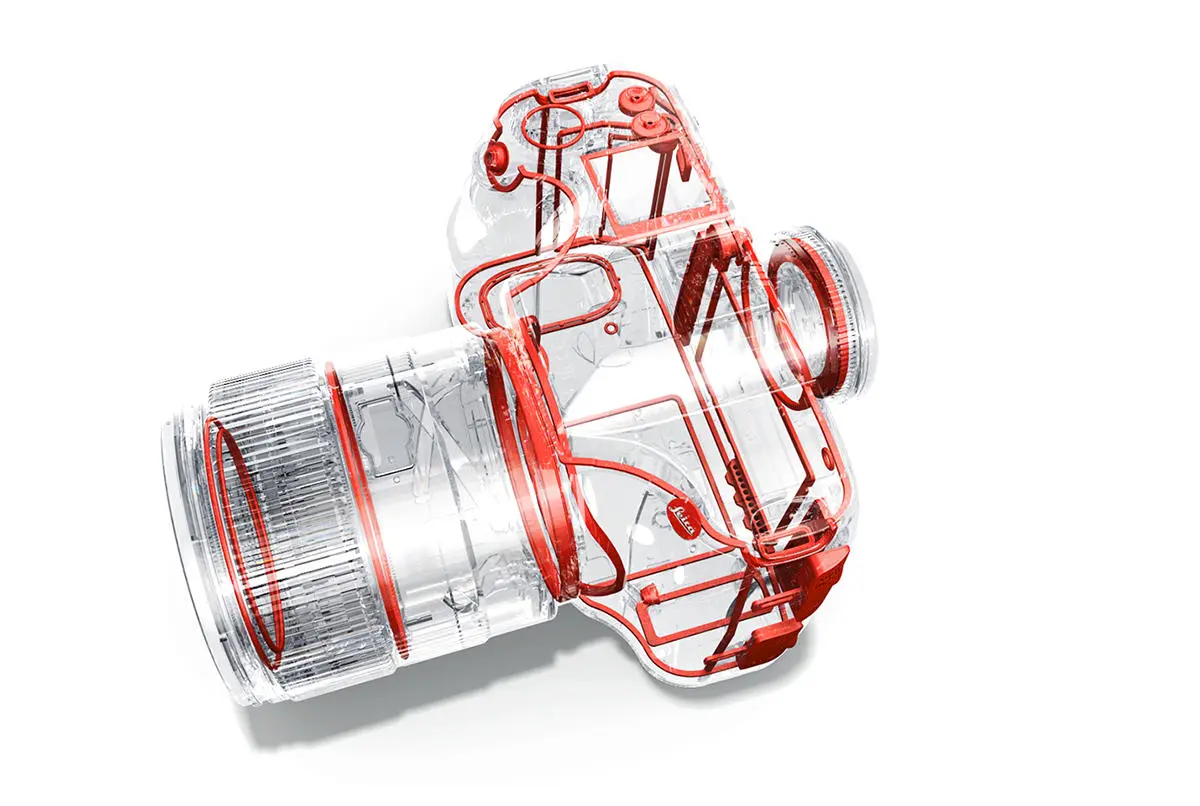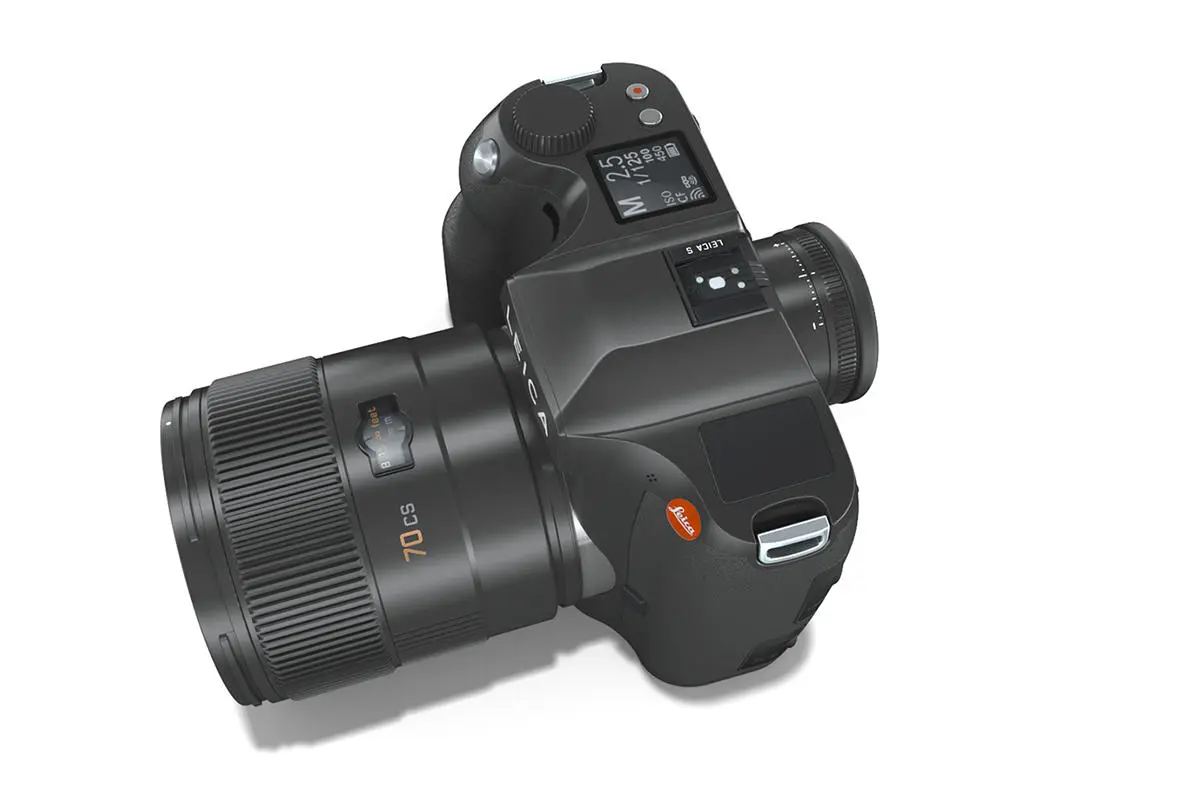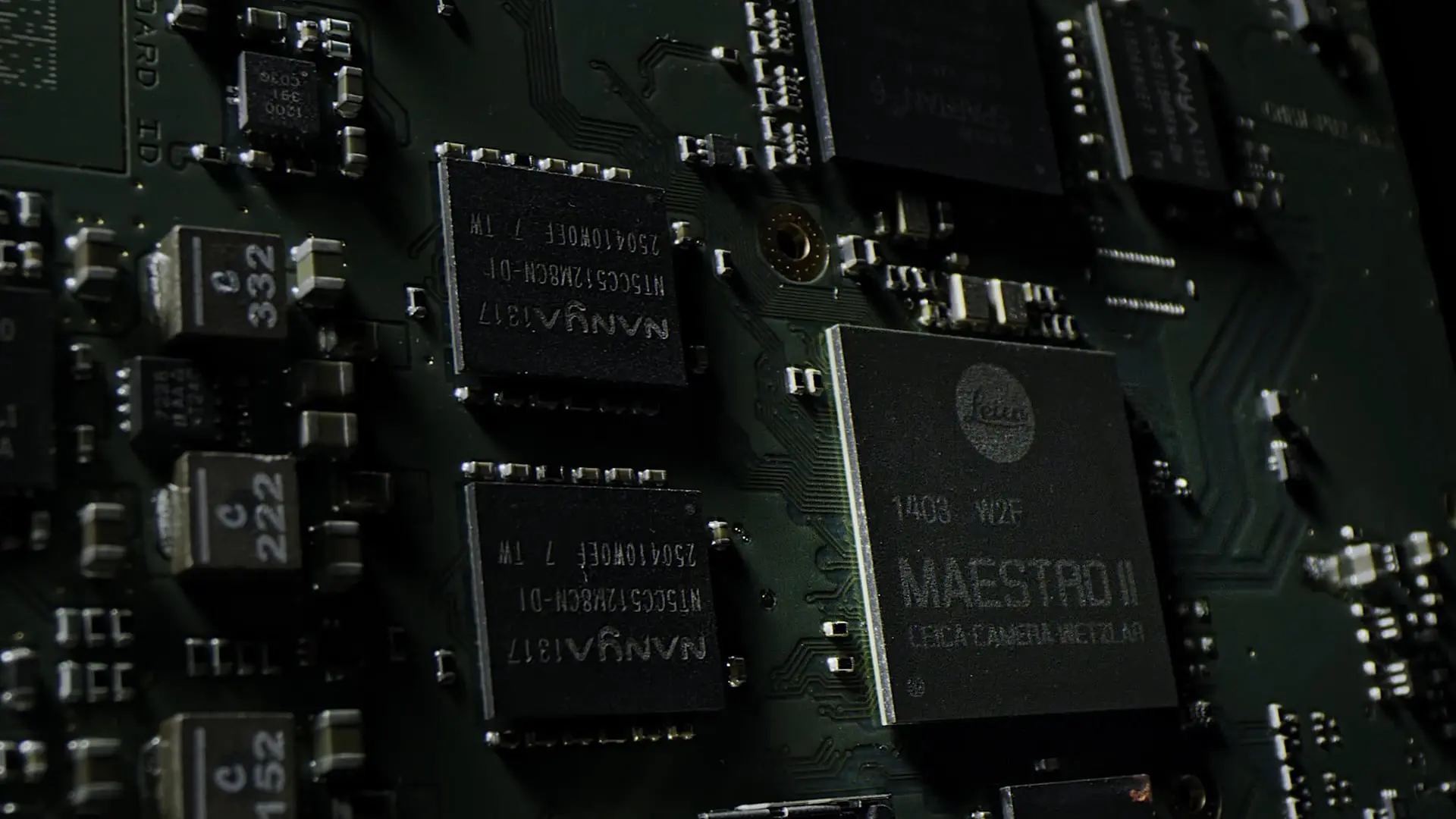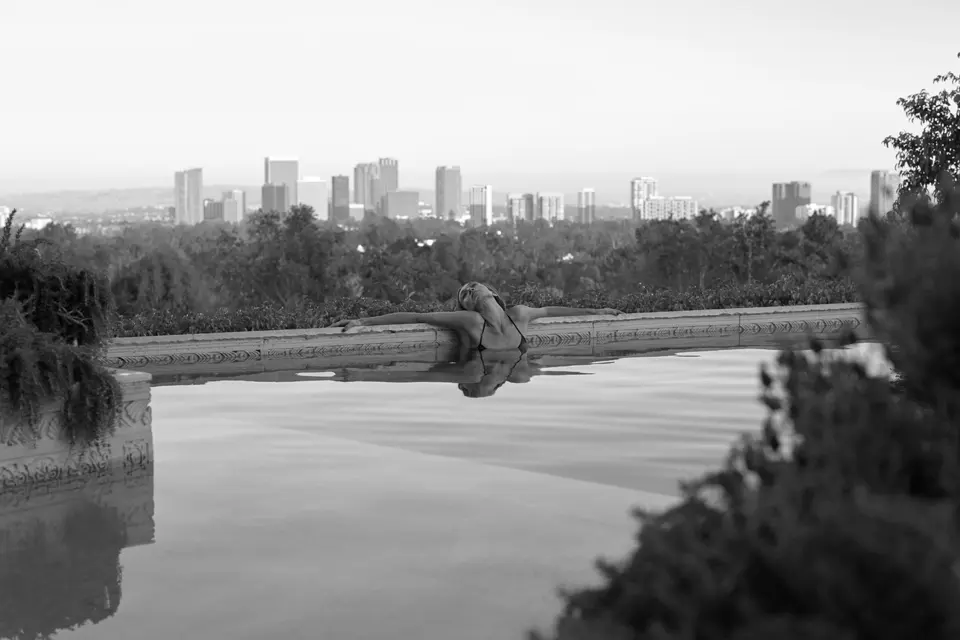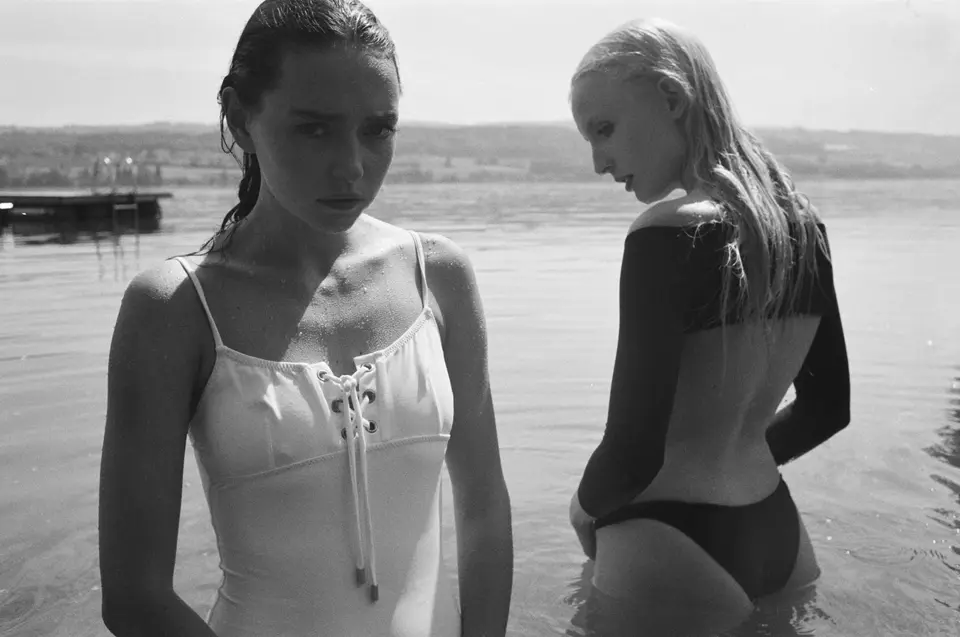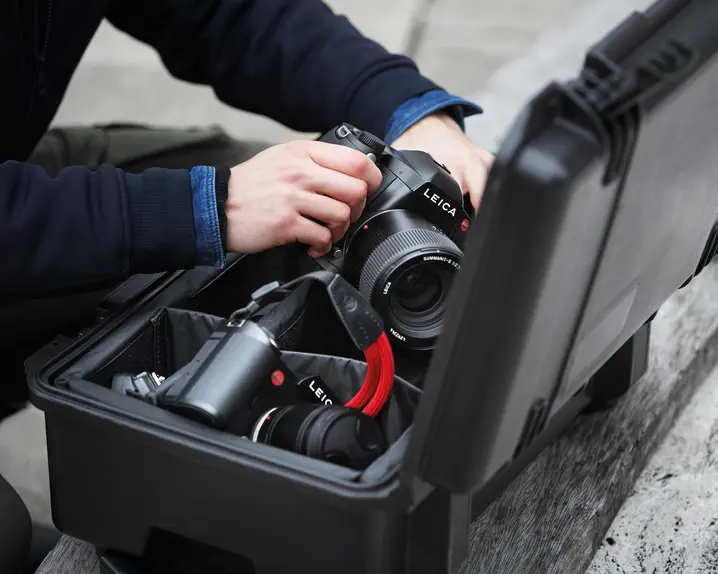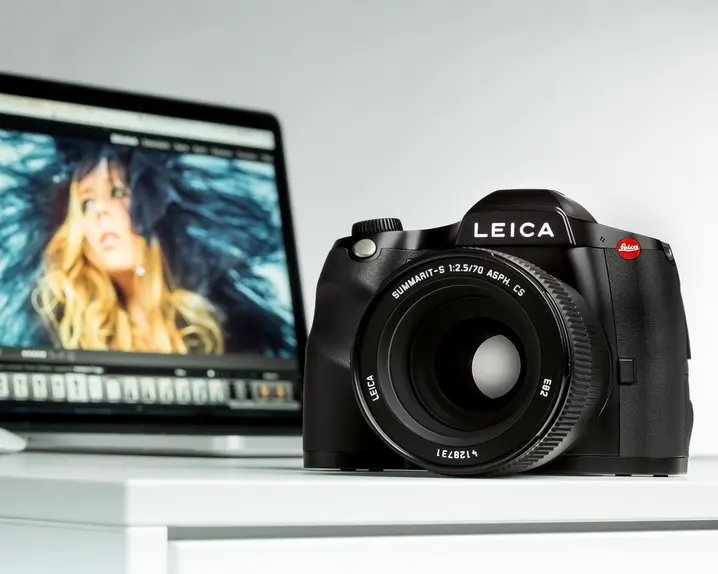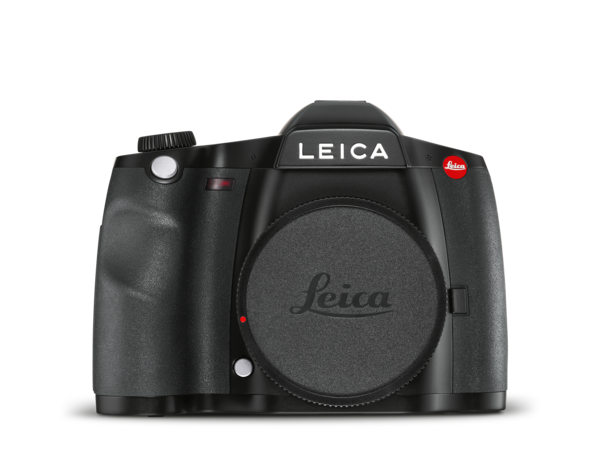
This unique class can be attributed to the perfect harmonisation of all of its individual components: with lenses created of unrivalled Leica quality for all applications and genres of photography and a large sensor developed exclusively for Leica in the unique Leica ProFormat. The S-System leads the way in terms of resolution and dynamic range and delivers a level of performance that is still apparent even in available light situations. Its precision-engineered, ultra-high-speed shutter mechanisms, a special image processor and predictive autofocus enable fast sequential shooting, thus combining the unique image quality of the larger format with the fast responses of a 35mm camera.
Discover an integrated system of precisely matched components and experience photographs with the legendary Leica look. Discover the Leica S-System – the new state-of-the-art in medium format.
Sensor Pictures with depth
The S3 features the next generation of the Leica ProFormat sensor, now with 64-megapixel resolution. With dimensions of 30 x 45mm, it corresponds to the aspect ratio of the classic 35mm format, while offering a light sensitive surface area that is larger by 56%. This change not only had a positive influence on image quality, but was also a significant factor in achieving the characteristic medium format look of pictures shot with the Leica S3.
How light is handled by the system plays a decisive role in the creation of the visual signature and imaging quality: a larger sensor requires lenses with a wider image circle. They deliver not only the considerably narrower depth of field typical for medium format lenses but, in addition, due to their constructional characteristics, do not need extremely large apertures to enable a large amount of light to fall on the sensor. At the same time, thanks to the larger sensor size, every single pixel is larger, captures more light and is thus able to process this extra light in an optimum manner.
The Leica ProFormat therefore represents an ideal balance between image quality and creative capabilities for a broad spectrum of photographic applications and uses the ideal synthesis of 35mm and traditional medium format.
The sensor of Leica S3 not only delivers impressive resolution, it also increases dynamic range to discernibly more than 15 stops and thus displays a previously unparalleled tonal range between shadows and highlights. Thanks to the high sensor sensitivity of up to ISO 50000, the Leica S3 need not be reliant on studio lighting. Whether on location, shooting a reportage project, or at weddings – whenever available light is to be used – the Leica S3 reveals its strengths and highlights the advantages of the larger format. In addition, the CMOS sensor enables video recording and Live View as added extra alternatives to the optical viewfinder image.
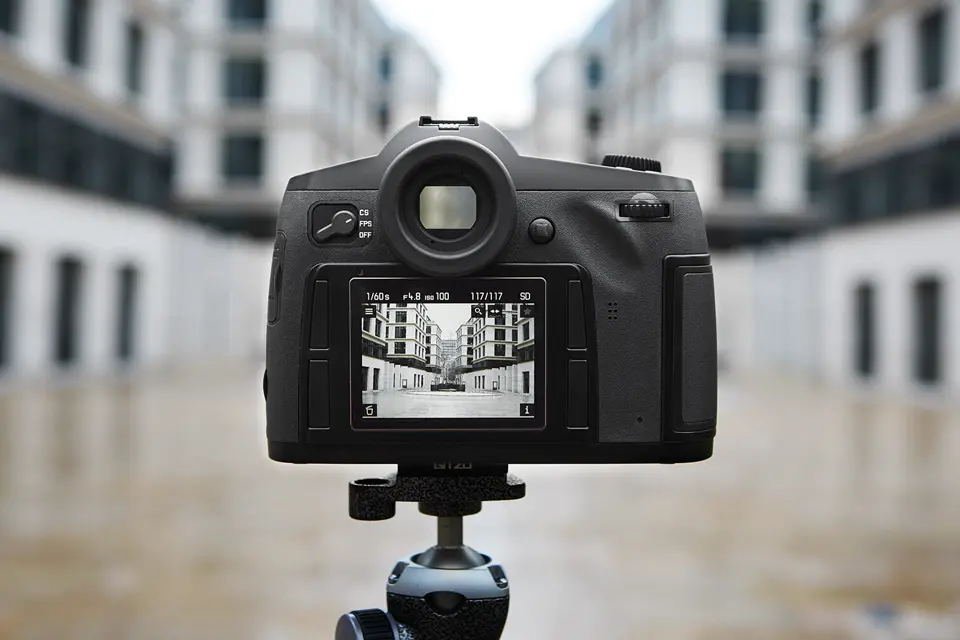
Fast to the point
The revised and improved predictive autofocus system of the Leica S3 always looks one step ahead. The lens and the camera act together as a perfect unit that takes the most direct way to sharp images. The autofocus is designed to quickly yet smoothly move to optimum image sharpness and can even incorporate corrections made in the very last fraction of a second. In a way that is absolutely essential for dynamic photography, it recognises all movements of a subject during the focusing process.
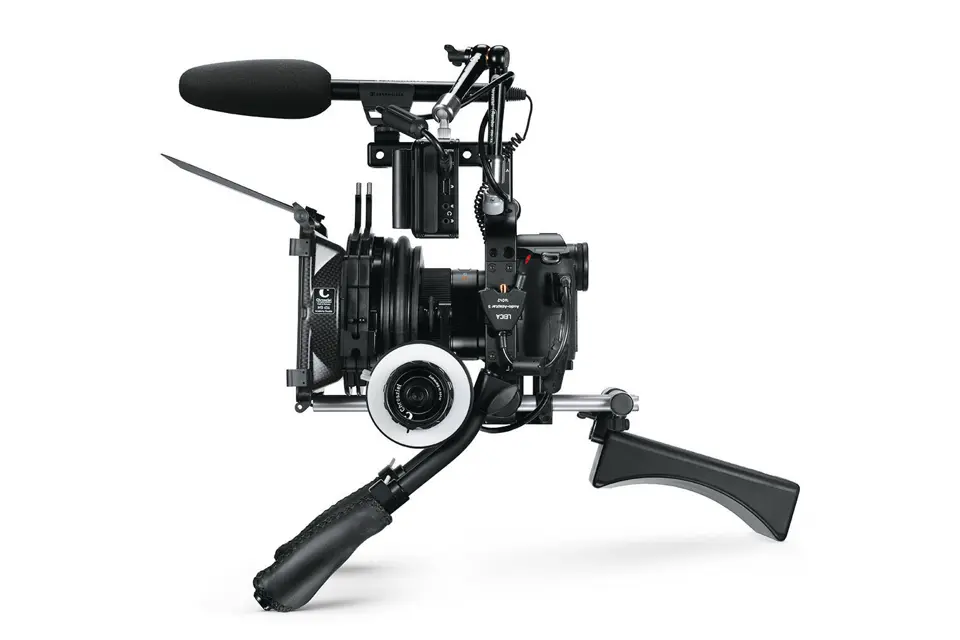
Medium format video Movie magic
With its Leica CMOS sensor and Maestro II series image processor, the Leica S3 has all the essential technology for shooting professional video footage in 4K cinema resolution and full-HD.
The full width of the sensor is leveraged at every resolution, which also lends video recordings the special look familiar with photos in medium format.
The horizontal perspective remains identical, whether shooting still or moving pictures. The exceptional image quality and the characteristic signature of the S-Lenses lends video recordings a unique cinematic flair. Thanks to selective focus and the characteristic Leica bokeh, moving pictures shot with the camera are just as breath-taking as stills.
The high quality of the movie shots is retained by virtue of 4:2:2 colour subsampling and files store in MOV format complete with time code. Thanks to Motion JPEG compression of the video files, the frames already work on a stand-alone basis. Therefore, this format is ideal for film editing even before conversion. As an alternative to internal video recording with a resolution of up to 4K cinema, the Leica S3 also offers an uncompressed stream in full-HD resolution that can be viewed on a connected monitor or recorded using an external HDMI recorder.
When shooting video with the Leica S3, users can not only choose from the entire range of S-Lenses, but can also mount lenses from other medium format systems with appropriate adapters. The Leica S3 offers various focusing aids for achieving optimum sharpness during manual focusing, which is typically employed when shooting films. Using Focus Peaking to display sharp areas of the image is, for instance, a practical aid for identifying points of optimum sharpness. The optional clipping display and the showing of grids complete the range of tools available when recording videos. For moving pictures, 48 kHz,16-bit stereo sound can be recorded with the integrated microphone or an off-camera microphone with automatic or manual level adjustment.
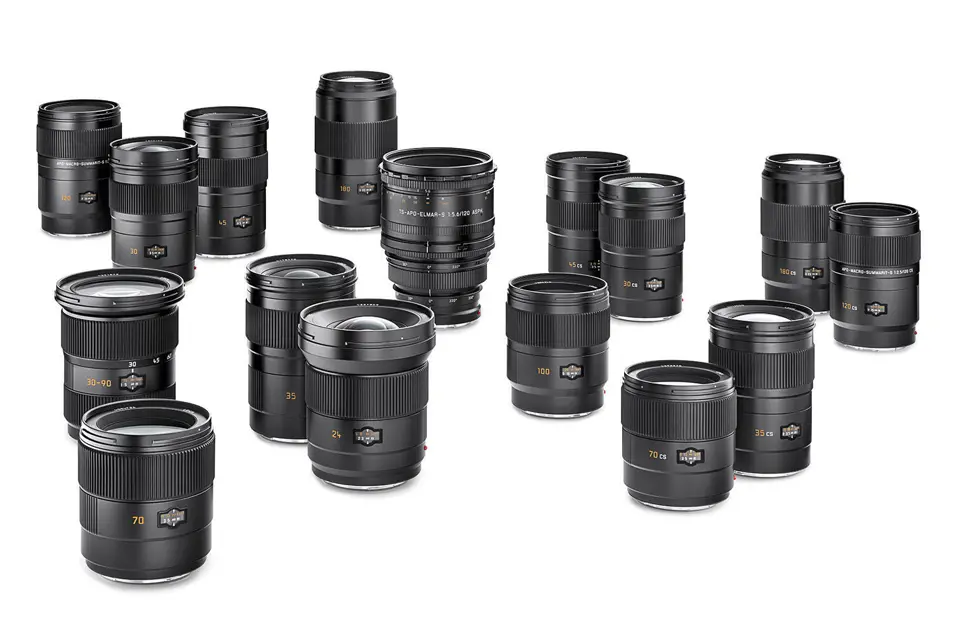
Pure precision
The lenses are crucial when it comes to the quality of any camera system. All S-System lenses have been built to achieve nothing less than maximum optical performance. Perfect reproduction of colours and skin tones, unrivalled contrast rendition, precisely defined planes of focus and harmonious bokeh; the image quality is always perfect regardless of the aperture or focusing distance.
This is because Leica draws on more than a century of expertise, employs high-quality materials and naturally utilises cutting-edge manufacturing technologies that go hand-in-hand with precise manual craftsmanship. This gives rise to lenses that redefine the boundaries of what is technically possible.
Simply by changing a setting on the main switch of the Leica S3 users can decide before every shot whether they wish to use the metal-bladed focal plane shutter integrated into the camera or the central shutter in the lens. With its fastest shutter speed of 1/1000 s, the Leica central shutter available for many S-Lenses offers photographers significantly greater creative leeway when working with professional flash systems for the suppression of ambient light or as fill lighting when using larger apertures on location. By way of comparison, the fastest sync speed offered by the focal plane shutter is 1/125 s. The central shutter thus expands the photographer’s creative scope by no less than three stop increments.
In case photographers already own medium format equipment, the Leica S-Adapters offer existing lenses a new lease of life. The Leica S3 masters the electronic settings of most third-party lenses such as autofocus and aperture at least as well as the systems for which they were designed. It raises the resulting image quality, however, to the level of a state-of-the-art digital medium-format camera.
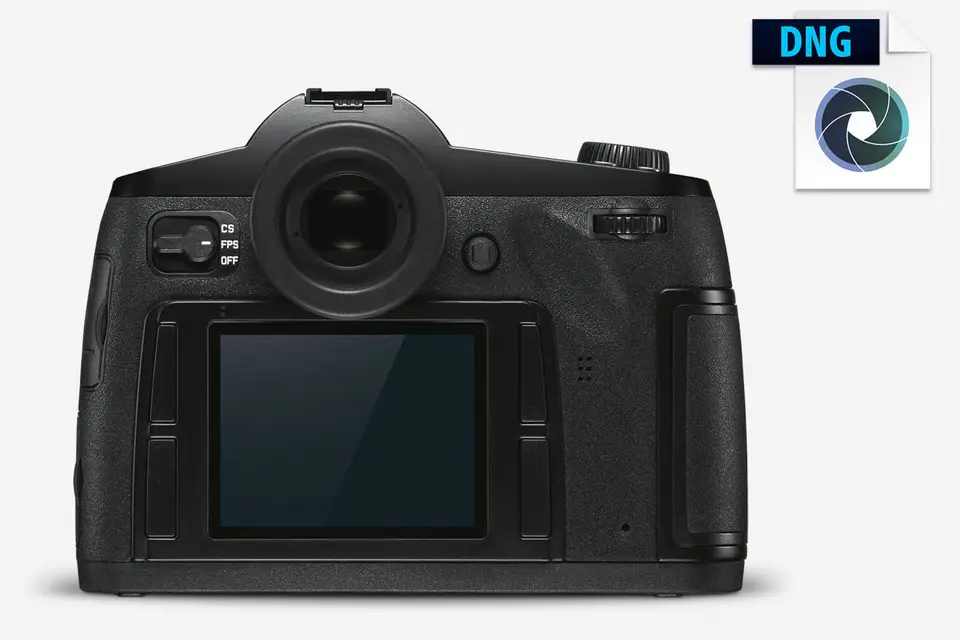
DNG
The image data captured by the Leica S3 can be saved in the future-proof DNG format (Digital Negative) – the only standardised cross-brand format that is not tied to a specific RAW data converter and can be read by the majority of image processing software packages. This means that the Leica S3 can be seamlessly integrated into every existing working environment.
DNG format not only allows the saving of all image data with lossless compression, but also all metadata for each exposure – for instance the focusing distance and the aperture. All data can be saved either to an SD card (SDXC), a CF card (UDMA7) or directly to an external storage medium (e.g. a PC).
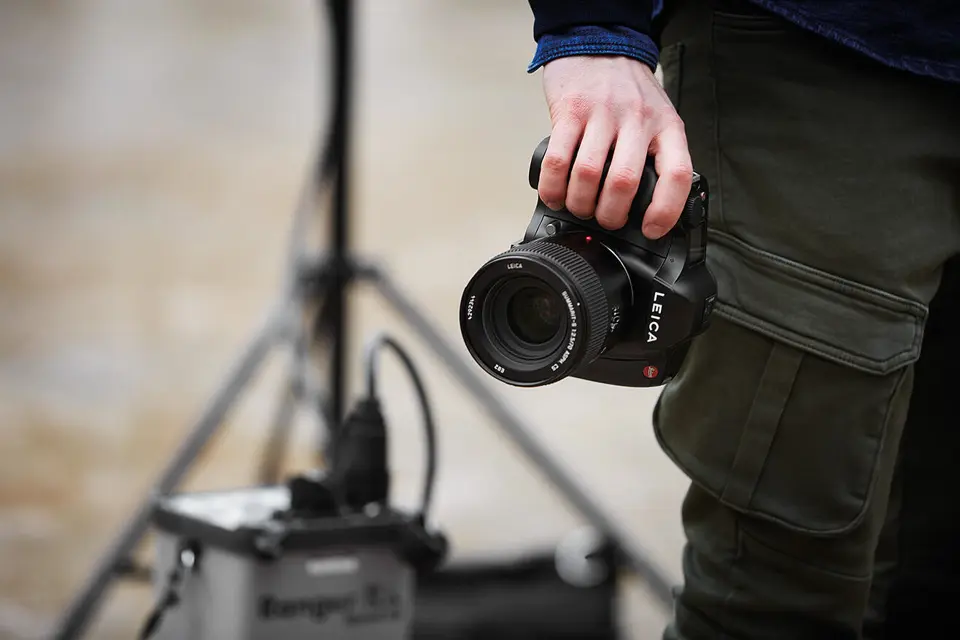
Controls and handling Logical and intuitive
An intuitive operating concept that relies on the absolute minimum number of control elements has been created for the Leica S3. The two central control elements of the Leica S3 are the click wheel and the five-way joystick, both of which are conveniently positioned for operation by the photographer’s right thumb. Through these functions, the photographer controls the aperture and navigates through the menus on the rear display, which is also surrounded by four buttons.
The camera’s main switch allows the photographer to choose between the focal plane and central shutter. The camera’s ergonomically designed integrated handgrip keeps it steady in the photographer’s hands and its relatively low weight and optimum centre of gravity ensure fatigue-free photography.
Maestro II Processor
Designed to fulfil the need for speed
The electronic components of the Leica S3 are designed to enable maximum data transfer speeds. Thanks to more than 9,800 parallel D/A converters, image data from the sensor is read in the shortest possible times without any loss of quality.
They are then processed by the Maestro II processor, which has been specially developed for Leica.
The 2 GB buffer memory ensures that all links in the processing chain can work as quickly as possible without ever sitting idle. Despite the high resolution of the 64-megapixel sensor, consistently high data transfer rates enable a shooting frequency of up to 3 frames per second. The processor installed in the Leica S3 ensures optimum noise suppression and ensures that the camera responds instantaneously to all commands.
S-Magazine online Art & fashion photography at its best
Digital features, videos, news, editorials & ads: Look no further for the latest internation shootings – shot exclusively with the Leica S.
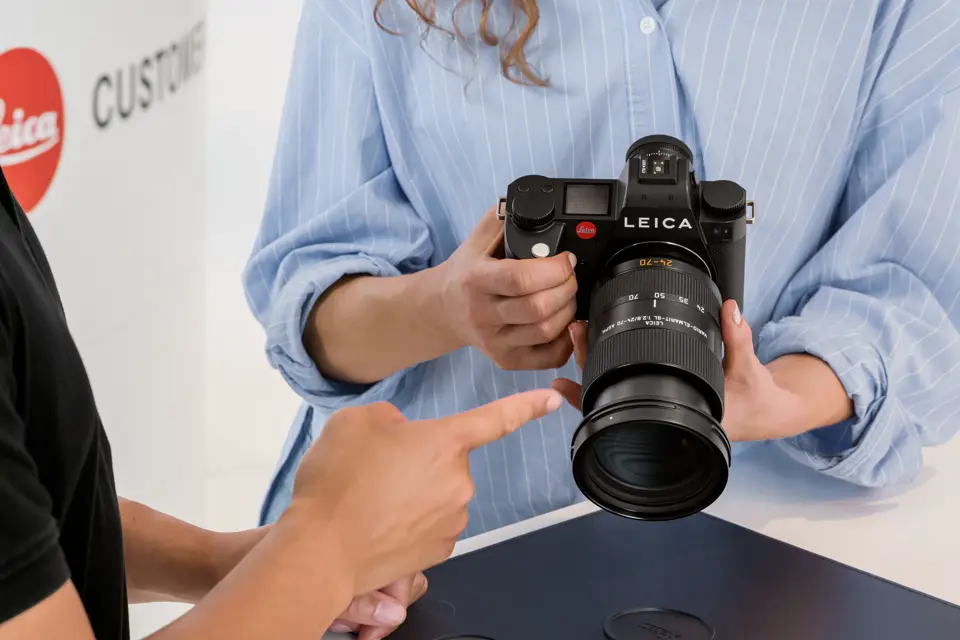
Discover the world of Leica with an Expert
Elevate your Leica experience with our team of Leica Experts and learn more about our services.
